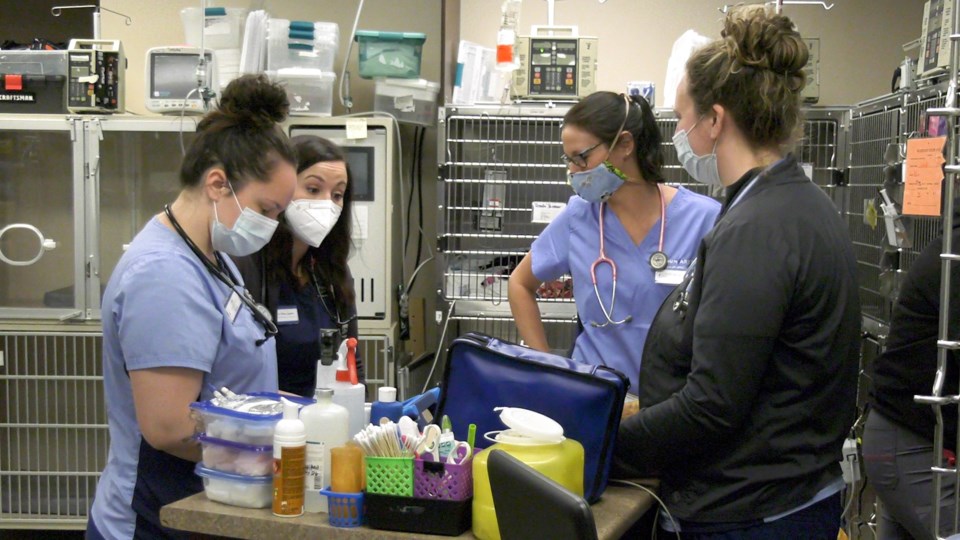It will soon be easier to get a veterinarian in B.C. — and to become one.
The B.C. government has permanently doubled the number of subsidized seats available for B.C. students at the Western College of Veterinary Medicine (WCVM) on the University of Saskatchewan campus.
The announcement comes nearly a year after the province increased the seats from 20 to 30 for the 2022-2023 academic year. Those seats are now staying, along with an additional 10, thanks to the provincial government's initial investment of $21.8 million over the next three years.
"Last year, we doubled the number of B.C. students funded to study veterinary medicine, and today we are committing to continue this funding, so more people receive quality training, and our pets and farm animals can get the health care they need," said Selina Robinson, Minister of Post-Secondary Education and Future Skills.
Only some seats at the Saskatoon school are designated for B.C. students.
Through the Interprovincial Agreement (IPA), funding is provided by the province. According to the Society of BC Veterinarians, these students pay $11,000 in tuition annually for four years. In addition to these seats, there are 25 non-IPA, or non-funded seats, which cost $69,000 annually — comparable to international veterinary school tuition rates.
Each year, up to 88 students enrol in the four-year doctor of veterinary medicine program.
Pam Alexis, Minister of Agriculture and Food, says vets play a vital role in supporting B.C.'s food security through their services to local farmers.
"It's clear we need more veterinarians in our communities, so our pets and livestock receive the attention they need when they need it, and our government continues to take action on both recruitment and training to make that happen," said Alexis.
In a release, the province says it will recruit more veterinarians and add veterinarians and registered veterinary technologists to the list of priority occupations under the Provincial Nominee Program in 2022.
Provincial funding will also support training for veterinary technologists.
Diploma programs at Douglas College and Thompson Rivers University, including a distance delivery option, also give opportunities for B.C. students to become registered veterinary technologists.
Corey Van't Haaff, the executive director of the Society of BC Veterinarians, praised the announcement for additional seating — something they've been advocating for since 2018.
"The decision today represents a collaborative effort of many in the province to recognize the vital role veterinarians play in animal health and welfare, public health, and food safety," said Van'tHaaff.
When Glacier Media spoke with Van't Haaff in 2022, she said veterinarians were calling her frightened and in tears. Many told her they had to quit.
"Everybody is overwhelmed because of the shortage of veterinarians, which was made worse because of COVID," she said at the time. "Veterinarians in British Columbia are really beyond the breaking point. We are hearing statistically... that the number of suicides, or suicide attempts, or suicidal thoughts among veterinarians are rising disproportionately from other occupations and populations."
The funding announcement is part of the province's Budget 2023, which has invested $480 million over three years into their Future Ready's plan to break down barriers to post-secondary training.






